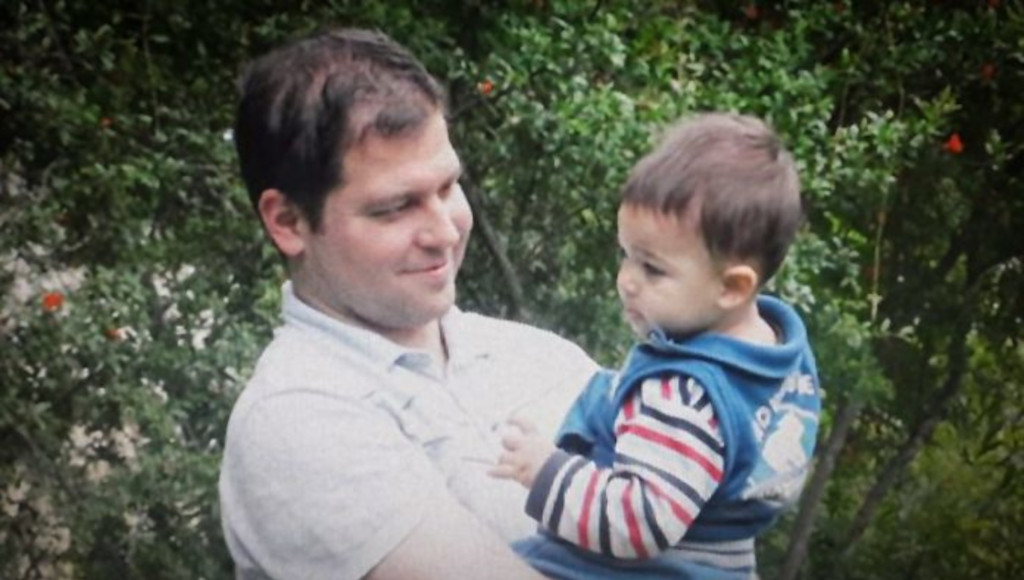The European Court of Human Rights (ECtHR) has rejected an application claiming that Turkish authorities failed to carry out an effective investigation into the case of Yusuf Bilge Tunç, a former public servant who went missing in August 2019 and is feared to have been abducted by Turkish intelligence, the TR724 news website reported on Thursday.
The Strasbourg court on Thursday announced its decision in writing regarding an application filed by Nuray Tunç and Mustafa Tunç, the wife and the father of missing Yusuf Bilge Tunç, on Sept. 2, 2019, alleging that Articles 2 (Right to Life), 3 (Prohibition of Torture) and 5 (Right to Liberty and Security) of the European Convention on Human Rights had been violated.
The court declared the application “inadmissible,” rejecting the allegations of Tunç’s family against the Turkish government as “unfounded.”
The ECtHR said it took into account the existence of an arrest warrant for Tunç but that there is no indication he was at any given time under the control of the security forces.
The court added that it considers, contrary to the applicants’ allegations, that Turkish authorities took adequate measures to find Tunç and that an ongoing investigation into his disappearance “certainly aims to find him.”
According to the court, investigations were carried out at the scene where Tunç was last seen before going missing: CCTV footage of the scene was analyzed, witnesses were interviewed and the mobile phone used by Tunç was examined in an attempt to locate him.
There is no reason to cast doubt on the willingness of the investigating bodies to clarify the facts and find the applicants’ missing relative, the ECtHR said, adding that it did not find any failure to fulfill obligations capable of calling into question the overall adequacy and promptness of the investigation carried out by the Turkish authorities.
Legal advisor Hakan Kaplankaya on Thursday stated in a series of tweets that the “unfortunate” decision of the ECtHR was based on an investigation carried out by Turkish authorities “for show” on May 11, 2020, nine months after the family filed the application with the European court.
Kaplankaya further stated that the court ignored the reality of enforced disappearances in Turkey by saying that there was no indication that Tunç was at any given time under the control of the security forces and that the decision sends the message that the relevant authorities are free to do whatever they want as long as they don’t get caught and conduct an investigation “only for show.”
1. Karara ilişkin eleştirilerimi kısaca ifade edeyim. Yusuf Bilge Tunç (YBT), 6 Ağustos 2019 tarihinde kayboluyor. Ailesi tarafından iki gün sonra yetkililere bildirimde bulunuluyor. https://t.co/ayh4UC8yq6
— Hakan Kaplankaya (@HKaplankaya) March 17, 2022
Tunç disappeared in Ankara on Aug. 6, 2019 in broad daylight, leaving no trace behind. Mustafa Tunç earlier said neither the police nor the prosecutor had cooperated with the family in finding their son.
Tunç’s car was found in a remote area 45 days after he vanished from Ankara’s GİMAT shopping mall. His family immediately called the police; yet the police showed no real interest in his disappearance. “The police only conducted a crime scene investigation six months after we found the car and contacted them,” said Mustafa Tunç. “We had already removed the car from where we found it, so the investigation was really a formality.”
Tunç worked in Turkey’s Undersecretariat for the Defense Industry, the government agency responsible for defense procurement, and he was summarily fired by an executive decree after a July 15, 2016 coup attempt on the grounds that he had links to the Gülen movement.
Nearly 30 people have reportedly been abducted by Turkish intelligence since 2016. Most of the abductions targeted members of the Gülen movement, a faith-based group inspired by Muslim cleric Fethullah Gülen.
Turkish President Recep Tayyip Erdoğan has been targeting followers of the Gülen movement since the corruption investigations of Dec. 17-25, 2013, which implicated then-Prime Minister Erdoğan, his family members and his inner circle.
Dismissing the investigations as a Gülenist coup and conspiracy against his government, Erdoğan designated the Gülen movement as a terrorist organization and began to target its members. Erdoğan intensified the crackdown on the movement following the coup attempt on July 15, 2016 that he accused Gülen of masterminding. Gülen and the movement strongly deny involvement in the abortive putsch or any terrorist activity.
Many of the abductees mysteriously reappeared in police custody in Ankara after six to nine-month absences. Apparently intimidated, most of them had kept their silence after their reappearance.

